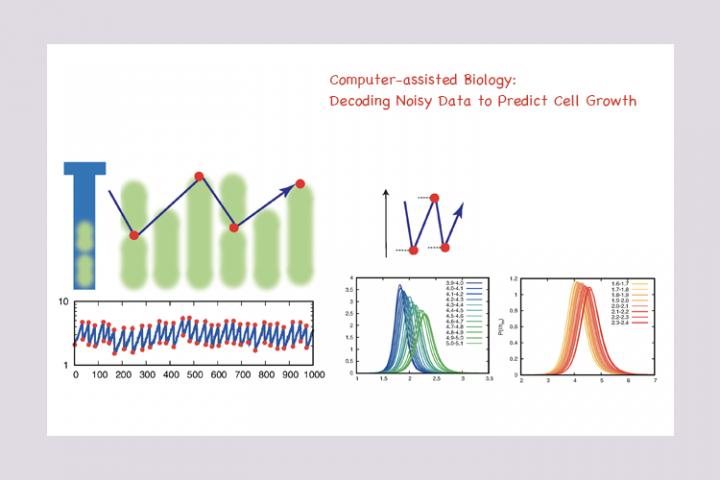
Credit: Institute of Industrial Science, the University of Tokyo
Tokyo, Japan – Scientists from The University of Tokyo Institute of Industrial Science have designed a machine learning algorithm to predict the size of an individual cell as it grows and divides. By using an artificial neural network that does not impose the assumptions commonly employed in biology, the computer was able to make more complex and accurate forecasts than previously possible. This work may help advance the field of quantitative biology as well as improve the industrial production of medications or fermented products.
As in all of the natural sciences, biology has developed mathematical models to help fit data and make predictions about the future. However, because of the inherent complexities of living systems, many of these equations rely on simplifying assumptions that do not always reflect the actual underlying biological processes. Now, researchers at The University of Tokyo Institute of Industrial Science have implemented a machine learning algorithm that can use the measured size of single cells over time to predict their future size. Because the computer automatically recognizes patterns in the data, it is not constrained like conventional methods.
“In biology, simple models are often used based on their capacity to reproduce the measured data,” first author Atsushi Kamimura says. “However, the models may fail to capture what is really going on because of human preconceptions,”.
The data for this latest study were collected from either an Escherichia coli bacterium or a Schizosaccharomyces pombe yeast cell held in a microfluidic channel at various temperatures. The plot of size over time looked like a “sawtooth” as exponential growth was interrupted by division events. Human biologists usually use a “sizer” model, based on the absolute size of the cell, or “adder” model, based on the increase in size since birth, to predict when divisions will occur. The computer algorithm found support for the “adder” principle, but as part of a complex web of biochemical reactions and signaling.
“Our deep-learning neural network can effectively separate the history-dependent deterministic factors from the noise in given data,” senior author Tetsuya Kobayashi says.
This method can be extended to many other aspects of biology besides predicting cell size. In the future, life science may be driven more by objective artificial intelligence than human models. This may lead to more efficient control of microorganisms we use to ferment products and produce drugs.
###
The work is published in Physical Review Research as “Representation and inference of size control laws by neural network aided point processes” (DOI: 10.1103/PhysRevResearch.3.033032).
About Institute of Industrial Science (IIS), the University of Tokyo
Institute of Industrial Science (IIS), the University of Tokyo is one of the largest university-attached research institutes in Japan.
More than 120 research laboratories, each headed by a faculty member, comprise IIS, with more than 1,200 members including approximately 400 staff and 800 students actively engaged in education and research. Our activities cover almost all the areas of engineering disciplines. Since its foundation in 1949, IIS has worked to bridge the huge gaps that exist between academic disciplines and realworld applications.
Media Contact
Tetsuya J. Kobayashi
[email protected]
Original Source
https:/
Related Journal Article
http://dx.




